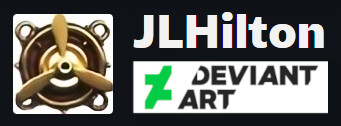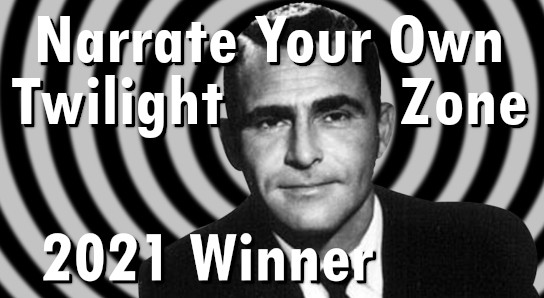 Being a published author, like being a reporter, is one of those “glamorous” jobs that isn’t.
Being a published author, like being a reporter, is one of those “glamorous” jobs that isn’t.
Anyone not in the news business may think being a newspaper reporter means looking like this guy. Reporters hang out with celebrities and politicians, travel to foreign countries, have abrasive meetings with wise-cracking editors, skulk around in parking garages with trench-coated whistle-blowers, win Nobel Prizes, and occasionally hump Superman, when we’re not otherwise coordinating our liberal agenda with the heads of the Illuminati.
And sure, there are a few reporters like that. Just as there are a few authors named Stephen King, George R. R. Martin, J. K. Rowling, or Stephenie Meyer.
But for most people in the news biz — the ones working in community newspapers and downsized dailies — being a reporter means working in a dank, windowless room, eating anything people are willing to leave on the broken filing cabinet in the corner. Two-day old Thanksgiving pies, scraps from the catered advertiser luncheon, and a bag of stale circus peanut candy are all mighty fine eatin’ to a group of cynical, over-worked, underpaid ambulance-chasers.
When I worked as a reporter, my days sometimes started at 7am, sometimes ended at 2am, depending on town meetings, random crime and publishing deadlines. I worked every single holiday. Yeah, if I had a dollar for everyone who’s ever asked me, “Why did you have to work on (insert holiday here, including CHRISTMAS)?” and I answered, “Well, you got a paper that day, didn’t you? You think magic elves made it?” then I might have been able to afford a decent lunch.
I spent the bulk of my time not actually reporting anything but inputting information — letters to the editor, local high school sports stats, announcements from the Chamber of Commerce, etc. This was back in the old days, the late ’90s, before everyone had email that I could copy and paste.
When I wasn’t copying information out of the police blotter by hand into a paper notebook and decoding all of their numbers and acronyms — technically it was “public information” but that didn’t mean they would make it easy for the public to understand — I was playing phone tag over the latest Marine killed in training exercises on the local military base, or taking pictures of empty, broken car seats at the sites of auto accidents. Yay, fun.

Humping Superman is one of the few job perks of being a newspaper reporter.
The most famous person I ever interviewed was “America’s Top Psychic” Kenny Kingston. The only politicians I hung out with were the small-town city council members who judged the Pioneer Days Outhouse Races. I was once stalked by a reader who sent me letters in which he talked about skinning women. Yeah. The police got involved in that one.
Granted, humping Superman was one of the few job perks, but the rest was a mostly crazy, sad, dangerous, thankless job that often involved phone conversations like this one:
Me: “Hello? This is Lois Lane with the Daily Planet.” (Not really, but names are changed to protect the not-so-innocent.)
Caller: “You hate my son’s school!”
Me: “Which school is that, ma’am?”
Caller: “West Shitborough High School! All you ever write about is EAST Shitborough High.”
Me: “I wrote about West Shitborough last week. Every week, I alternate schools.”
Caller: “I bet you graduated from East Shitborough!”
Me: “No, I just moved here from the other side of the country. I don’t have a preference for either East or West Shitborough.”
Caller: “Well, you screwed up all of your information. The principal’s name is Mrs. BROWN, not Mrs. BRAWN.”
Me: “Yes, I know. My editor changed it. We had an argument and he insisted he knew her personally.”
Caller: “So, it’s your editor who hates West Shitborough!”
Me: “Yes. Would you like me to transfer you to him?”
Caller: “No, I want to keep yelling at you! YOUR name is in the byline!”
So, why didn’t I leave for a better-paying, less-stressful job? Because I believe with my whole heart and mind in freedom of the press. Because I loved being a part of something that was so important to so many people — information. And I’ll not deny that my passion for printers ink poured into my novel, Stellarnet Rebel, though journalists are replaced by interstellar bloggers, in my version of the future.
I did eventually leave the job, in part because I became a mother and chose to pursue other interests that didn’t involve constant contact with death, murder, politics and idiocy.
But, returning to my original point, there’s a big difference between what people perceive a writer to be, and what she really is. Ever writers of fiction.
Unlike being a reporter, being a writer means working in a dank, windowless room, eating anything people are willing to toss at you for free and … oh … wait a minute …
This post was inspired by a conversation on my Facebook author page, where I solicited ideas for promotional swag. I was asked why I, the author, had to deal with marketing.
Fact is, first-time authors don’t get a lot of promotion, and there are thousands of great books published every year that you’ve probably never heard of because they weren’t made into movies — and that’s not including all of the self-published and small press offerings. Carina Press does give me stickers, postcards, graphics, ads, etc., and lines up blogging and other opportunities for me. But, from what I’ve heard, many publishers, even large print houses, don’t do that much.
As Michael Ray King says in his article, “Writing Myths Perpetuated,” and which I’ve found echoed throughout the author community:
Your book must be written – true – it must be well-edited – true – and your book must be marketed – true. But that marketing is not going to be your publisher. I know a seven-time New York Times bestselling author that received $50,000 for promotion of his new book.
Large dollars you say? In advertising dollars that $50K won’t go anywhere nationally. Nor regionally for that matter. This is not money for the author either. This is the advertising budget. For a seven-time New York Times bestselling author.
My point here is that you, the author, will have to market and promote your book. You will spend your money, your time, your resources and your effort to get this baby off the ground. Writing the book is only 5-10% of the work.
One of thousands of examples is when Mary Robinette Kowal published her first regency-period fantasy novel Shades of Milk and Honey with Tor. She came up with the idea of giving away sandalwood fans as promo items, and personally purchased and stamped them with her book’s website. I know, because I got one from her at a coffee klatch during NASFiC in 2010. She also produced her own book trailer, as many authors do.
My parting hope is that I leave you, Reader, with the knowledge that authors need you. If you love a story, tell your friends. Share on Facebook and Twitter. Leave a review on Amazon, B&N, Google books, or Goodreads. Writers love to hear from you, but we’d prefer to read a blog post about how much you enjoyed our work so we can repost it and use it in our PR and social media.
I also invite you to become acquainted with niche and small press book publishers — those like Mocha Memoirs Press, whose recently-released title Moses: The Chronicles of Harriet Tubman Book 1 is a kickass steampunk, supernatural action-adventure. Or authors like SM Reine, whose self-published 19 Dragons was one of the most engaging stories I’ve read in a long time.
Don’t assume that the limited selection you see on the brick-and-mortar bookstore shelves are ALL of the books you could possibly read. Don’t assume that our promo swag came from some New York office. Don’t assume that having a published novel means we’re suddenly quitting our jobs and signing movie deals.
It’s really not as glamorous as you think.
~ J.L. Hilton
Connect, support, comment or contact the author here








